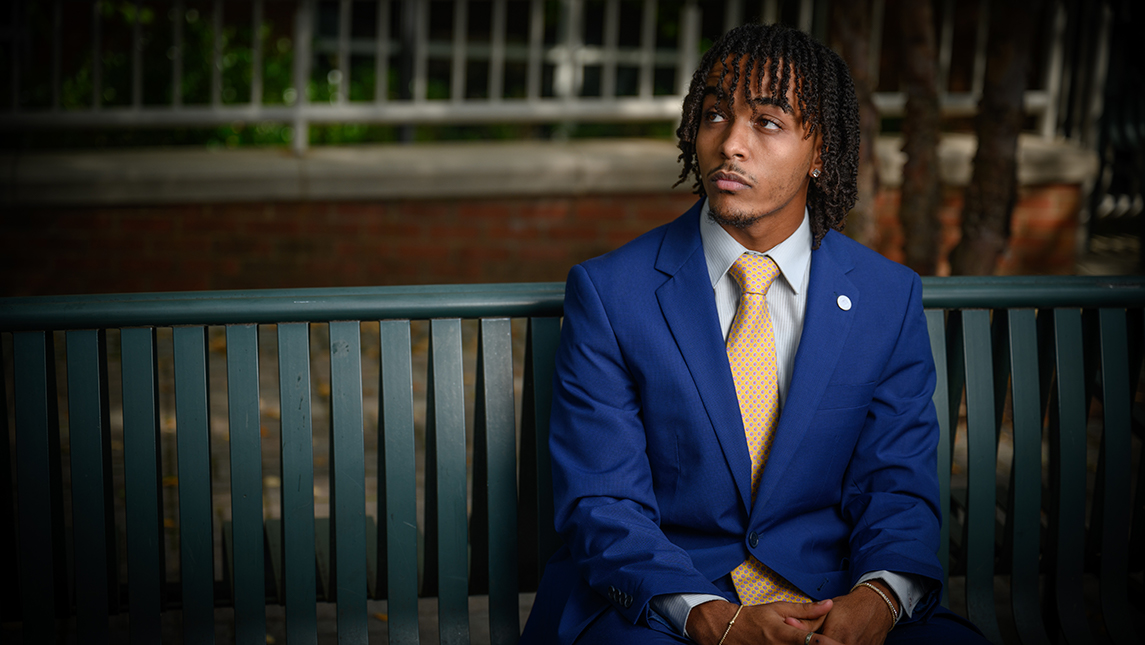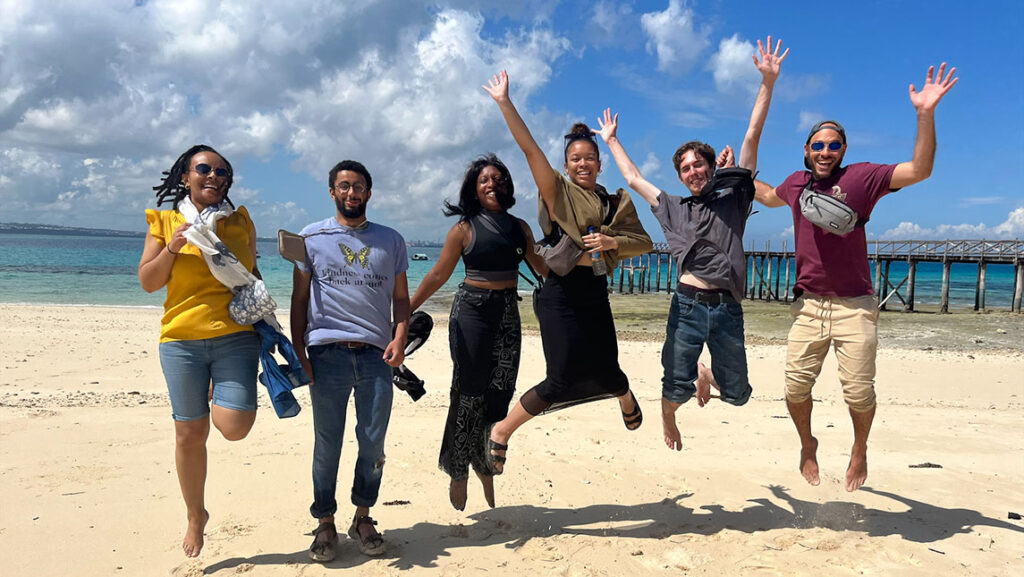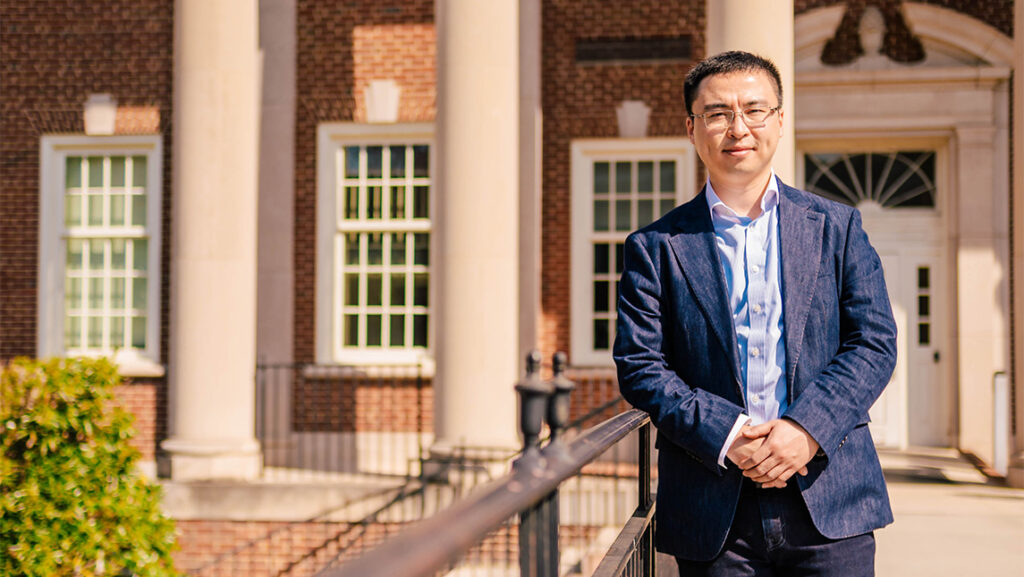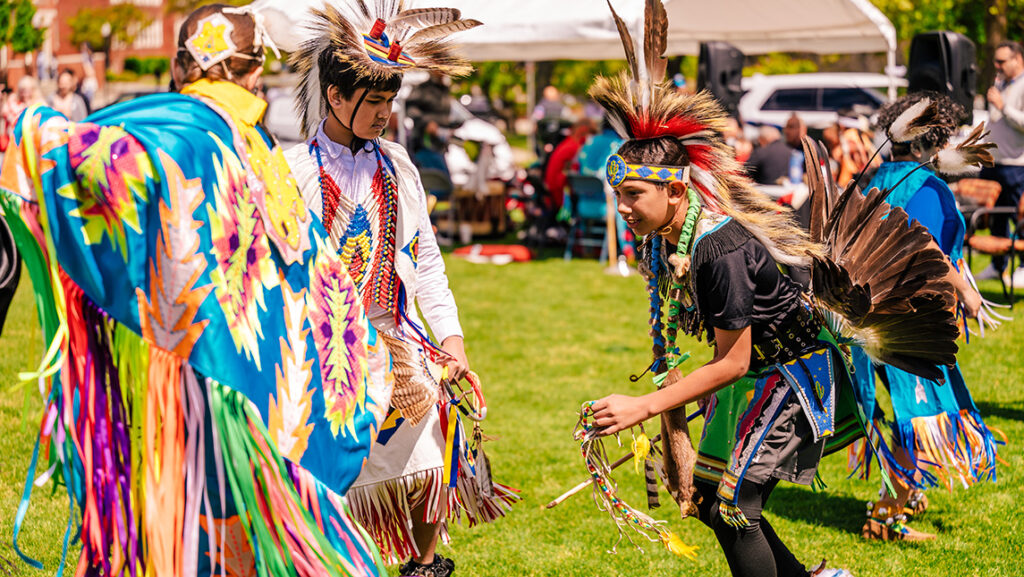
Since 1914, UNC Greensboro’s Student Government Association (SGA) has made an impact on the campus community by serving as a voice for the student body.
This year is no different, as Spartans have been transitioning into a “new normal” while back on campus for the fall semester.
And SGA President Hazael Mengesha is making that sense of community a priority after a year of learning, research, and community engagement through screens.
Learn more about Haz and his goals as president in the interview below:
Tell me about yourself.
I was actually born in Ethiopia, and I moved to the states when I was fairly young. I went to Enloe Magnet High School in Raleigh, and I always had a feeling I would go to UNCG for college. I applied to six schools and got accepted into all of them, but I had a gut feeling that UNCG was for me. Being awarded two scholarships – the Board of Visitors Scholarship and the Betsy Umstead Undergraduate Scholarship – sealed the deal for me. I’m a first-generation college student and also a Pell-grant recipient. I grew up eating reduced lunch and my parents worked really hard, so to have these scholarships and not have to worry about a financial burden on me or my family is huge.
But regardless, I feel like UNCG is a hidden gem. We’re a community-based school, and the student body is so diverse. I went to a diverse high school, so coming here felt like home, and it gave me the opportunity to interact with so many people that don’t look like me and don’t have the same hobbies or interests as me.
I’m a junior studying kinesiology with a double minor in biology and chemistry. I’m on a pre-PA to physician assistant track. I want to become a PA because you’re in the practice and in the immediate care setting seeing patients right then and there. That’s what I’d like to do after graduating – go to PA school.
What are your goals as SGA President this year, especially in the pandemic? How is SGA supporting students in this new normal?
Like I said, UNCG is really a community-based university, and I feel you can find your niche here. There’s always a place for someone. SGA’s focus now is trying to promote community during this pandemic. We’re focusing on student engagement, trying to show students that we’re all here for each other at the end of the day. I saw that almost 70% of our students reported some type of anxiety, and 50% reported some type of loneliness through the pandemic, so we want to promote mental wellness and mental health education, too.
Another important initiative is inclusivity. We recently did a safety patrol walk and found buildings that were not properly suited for those with disabilities, so we are advocating to get the necessary accommodations in those spaces. We are also have been facilitating dialogue for more gender-neutral bathrooms, more feminine hygiene products in facilities, and more initiatives to make students feel more comfortable and welcome.
Personally, as president, I’m making an effort to make SGA’s presence on campus more known, especially after a year of being off-campus. I’m going out and actively seeking people I’ve never talked to before, like different student groups and areas on campus, and having conversations with students. I want to show students that although I do serve as president, it’s just a role, not my identity. I’m also a student and their peer. I’m someone that they’ll see in their class or walking on College Ave. I’m someone struggling alongside them on tests or someone they can chill with outside of class. I’m trying to bridge that gap between the student body and SGA.
What does being president mean to you? To be a role model and give back to the student body?
It means a lot. Growing up, I never really had or saw someone in a position of leadership that looked like me, or talked like me, or had the same experiences as me. So by being in this position, I want my peers to know that if I can do it, they can do it. There were times where I never saw myself in this type of position, and I feel blessed to be in the position right now. So, I want to use this blessing to show other students that it doesn’t matter who you are, whatever persona people try to paint you as, or try to tell you to be as long as you know that you can do your job, and you can be yourself. And that’s something that I’m really striving to do – I want to be my authentic self the whole time. I’m not just going to be a guy in a suit – that’s not me and that’s not what I represent. But I’m still advocating for students and I’m still taking this job seriously to show students that you don’t have to switch up who you are to do what you want to do as long as you really believe in yourself and put in the necessary work.
What is your advice to Spartans?
Peyton Upchurch, an attorney general in SGA, always says something that really resonates with me: “Be still.” So that’s something I would want to tell my peers. Be still and take every day step-by-step. We tend to really worry about the future a lot, but then when the future gets here, we don’t take time to enjoy the present. Live in the moment. The only thing we can’t get back in life is time. So when you’re at UNCG, enjoy your time here, because the next thing you know, you’re going to be a senior. And especially since we got hit with the pandemic, which took a lot of time, that makes this more important than ever.
I also want to tell students that even through adversity, we were resilient as a campus. We did not get kicked off campus last year. We’re still here right now compared to many universities. And that just shows how responsible our students are. It again shows how community-based we are. We have an administration that is setting these guidelines, and we have students that listen and care for one another.
There will be false peaks along their journey. When you climb a mountain, you think you’re at the top, but you still have to go down and go back up a few more times to reach the true peak. That’s how life is going to be. Whenever you’re at the top, and you’re feeling yourself coming down, just know that you’ll be back at the top again. So be resilient, be still, and take every day as it comes.
Interview by Alexandra McQueen, University Communications
Photography by Martin W. Kane, University Communications


